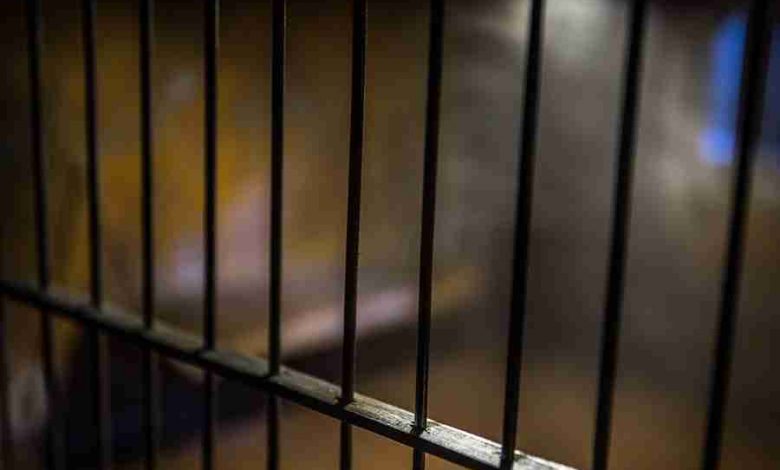
A new, dynamic five-person team has been assembled. They are resourceful, agile and ready to make an impact in communities across the state. Are they the latest team of all-star superheroes? Perhaps. They’re Iowa’s new corrections pathway navigators.
As part of an initiative through the Iowa Consortium for Higher Education in Prisons (ICHEP) – which brings together the Iowa Department of Education, Iowa Department of Corrections, Board of Regents and higher education institutions – the five corrections pathway navigators are tasked with the broad goal of connecting students within Iowa’s nine correctional facilities with education resources, trainings and college courses.
However, this definition is oversimplified as pathway navigators wear many hats. They serve as academic advisors, point-of-contacts, support systems and all-around coordinators for incarcerated students who are looking to earn high school equivalency diplomas, new vocational skills or even college degrees.
“Students will actually have someone they can see and connect with in the prisons,” said Peggy Long, education consultant at the Iowa Department of Education. “Prior to now, students had to coordinate everything on their own. The pathway navigators will be present in the prisons and can guide students through their entire process and educational journey.”
Inmates interested in pursuing education can seek assistance through pathway navigators on items such as securing financial aid, setting up courses, completing paperwork and applications and understanding next steps. For example, federal Pell grant eligibility opens up for incarcerated students in 2023. Pathway navigators will undoubtedly need to provide guidance on the rules, deadlines and application requirements for the funding, but they are ready for it.
“It will be exciting to see more people utilize Pell for classes while incarcerated,” said Madison Stearns, corrections pathway navigator for Mount Pleasant Correctional Facility and Iowa State Penitentiary. “It’s an amazing opportunity that I can help with.”
Corrections pathway navigators are highly experienced and resourceful in working with this special population as well as the supports available within their regions. They will be vital for students who are transferring to other Iowa facilities or will be released back to their home communities, and their coordination will provide a better transition for each student. All five pathway navigators will work together when students move to different regions.
“We have made it clear that we are working cooperatively,” said Jennie Doke-Kerns, director of Justice Impacted Communities and Academic Services at Des Moines Area Community College and chair of the ICHEP. “These pathway navigators will serve as a mechanism to connect students with services in their home space or other institutions. This is extremely important.”
The corrections pathway navigators are housed out of five community colleges – Des Moines Area Community College, Iowa Central Community College, Iowa Western Community College, Kirkwood Community College and Southeastern Community College – but they are not tied to their specific colleges when arranging services for students and are considered statewide coordinators. Their regional basis allows for proper coverage of Iowa’s nine institutions and knowledge of the area’s individual educational and career resources.
With the assistance of corrections pathway navigators, incarcerated students can ensure that their earned college credits and transcripts will easily follow them to their next location, whether it is to a different facility, community college or four-year institution. Pathway navigators will also specifically guide inmates who are being released back to the community with how further education will look on the outside of the prison system.
“These students have unique needs.” Doke-Kerns said. “These services are more than just classes. It’s a connection to resources and serving students in every step of their educational journey.”
Having corrections pathway navigators can help move towards a more parallel experience found at a traditional college campus and can help expand opportunities for students. With assistance from pathway navigators, incarcerated students may be able to participate in more career and technical education (CTE) classes and hands-on equipment learning, which often requires more coordination and safety clearance. These CTE opportunities for training and further education can lead to careers that are in demand once released from prison.
“Over 90 percent of inmates will return to their communities,” Doke-Kerns said. “Before the pandemic, it was reported that around 58,000 skilled trade jobs were open in Iowa. We can help them receive that training and connect them with services and employers upon release. It just makes sense.”
Education opportunities within corrections can provide not only a pathway to individual achievement and second chances but also assurances of a safer community and a stronger workforce.
“People who have education and a career path are less likely to reoffend,” Long said. “Education in prison can change and grow their skills. It will make them more employable and able to fill Iowa jobs that need workers.”
The five pathway navigators are just getting started with their work. They’re making connections with potential students and are already seeing demand.
“I have several new guys who are interested in classes,” Stearns said. “They’re stopping me more to ask questions about their options. Now that they have a face and point-of-contact, they are very interested.”
It will unquestionably be an exciting first year for the consortium and their corrections pathway navigators. They anticipate continuing their collaboration between state agencies and higher education, addressing growing pains and looking into future expansion of the initiative. For pathway navigator Stearns, though, she’s setting her sights on a specific success.
“I’m really excited for one student at the Iowa State Penitentiary; he only needs a few credits for an associate degree (AA) in general studies,” she said. “I’m excited to see this first AA degree at a maximum-security prison. It’s a huge accomplishment.”




